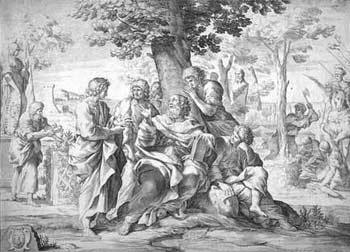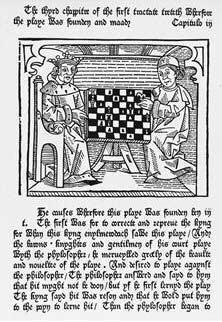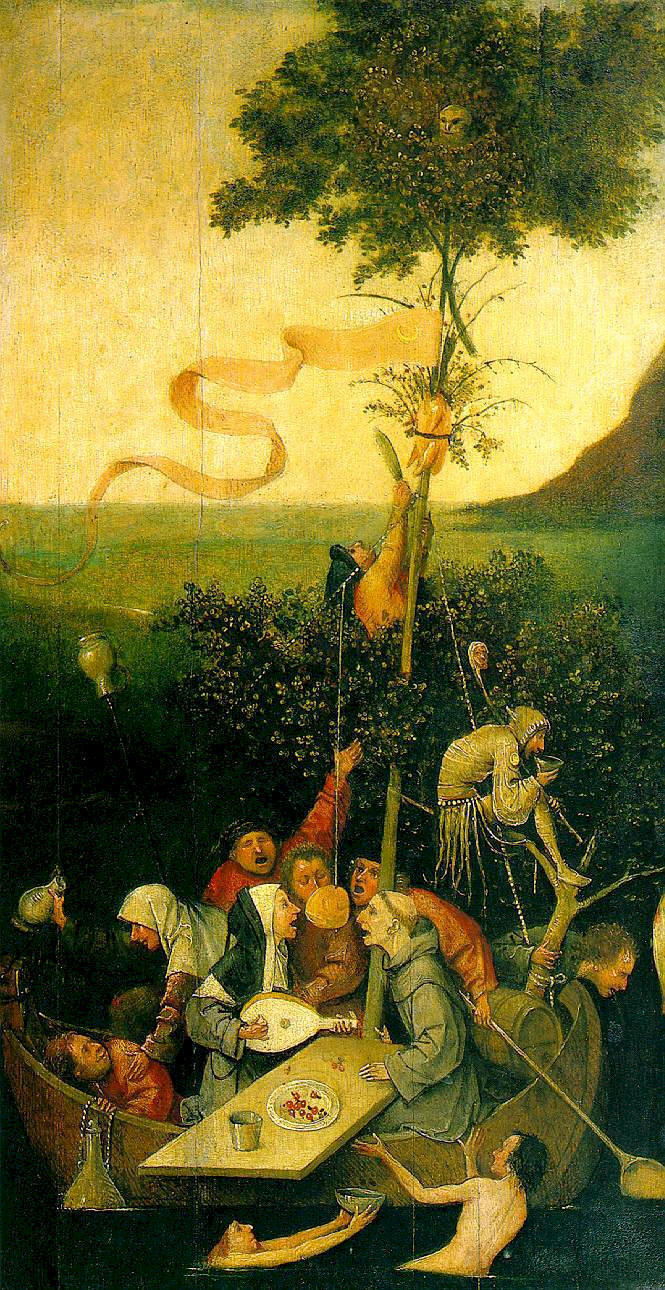CoursesFreshman and Sophomore Level
105
Introduction to Philosophy.
Suppose that you had a
serious head injury and forgot everyone and everything that you ever
knew. Th 110 Modern Logic. Logic can be thought of as a study of the principles of good reasoning. This course introduces two formal systems (propositional logic and predicate logic) that will facilitate analyzing and constructing arguments. Students are taught how to represent ordinary English claims in a symbolic language and are introduced to truth tables, formal proofs, and truth trees or classical syllogisms. 203 Philosophy and Art. An examination of various accounts of art from Plato and Aristotle to the present. Topics covered include: art and truth; the peculiar kind of being of works of art; objectivity in meaning and interpretation of art; feminist, postmodern and multicultural criticisms of traditional aesthetic theory. 205 Ethics.
A critical analysis of ethical theory, including (but are not limited to)
consequentialism, egoism, relativism, religious ethics, feminist ethics,
virtue ethics, and deontological ethics. 207 Ethics and the Environment. Driving gas-guzzling cars, living in McMansions, and eating lots of meat are just a few of the many things that take a significant toll on our environment. Most of us would agree that these activities are morally suspect, but just what makes them wrong is a source of tremendous disagreement. Does the problem lie with the harm they cause to other people, now or in the future? Or does it rest with the damage we inflict other animals and possibly plants? Might the wrong ultimately lie not with our impact on particular individuals but with the harm we cause to entire species or ecosystems? This course explores many theories that have been advanced to answer these questions, as well as looks carefully at what these theories say is required of us. Traditional ethical approaches, animal welfarism, biocentrism, ecocentrism, and social ecologism are typically studied. 209 Ethics and Medicine. From euthanasia and abortion to genetic engineering and cyborg technologies, the moral issues that arise in the context of medicine and the health sciences today are as controversial as they are complicated. Understanding them often involves both appreciating the science and technology they involve and attending to their social and historical context. This course considers these factors, but our ultimate aim lies with determining how moral theories might be used to resolve the problems themselves. Traditional ethical approaches (like utilitarianism, Kantian deontology, and virtue ethics) are useful tools to this end, and so our course begins with an introduction to them. We also carefully consider different accounts of what gives life its value and when, if ever, death can benefit the one who dies. 211 Feminist Thought and Its Critics. Just knowing that someone is an economist tells you nothing about their specific economic views (are they a Lafferian supply-sider, a Friedmanesque free-marketer, a Keynesian interventionist?) Similarly, knowing that someone is a feminist tells you nothing about what kind of feminism she or he endorses. There are conservative and liberal feminists, Marxist feminists, radical feminists, psychoanalytic feminists, postmodern feminists, multicultural feminists, and ecofeminists, many of whom disagree with one another. This course survey the different types of feminist theory, and consider both internal and external critiques of those theories.
213
Law and Morality. If your parents made out a legal will
leaving everything to you, would you still be able to inherit if you
murdered them? Why can an attorney (whose client admits to the murder he
is charged with) nonetheless tell a jury that he's not guilty? If an
unjust government passes an immoral law, does anyone have to follow
it? This class will focus on
the fascinating and complex relationship between law and morality. Topics
will include issues in philosophy of law (what makes something a 220 Ancient and Medieval Philosophy. The history of Western philosophy is the history of competing ideas, some of which have been discarded, but many of which remain important and influential. This course begins at the beginning, with ancient Greece, and continues through the medieval period. Special attention is paid to Plato, Aristotle, Augustine, and Aquinas. 225 Early Modern Philosophy. This course picks up where Ancient and Medieval Philosophy ends and explores traditional philosophical problems as they were addressed in the early modern period. Descartes, Locke, Berkeley, Spinoza, Hume, and Kant typically receive the most attention. The problems explored include skepticism, the relationship between mind and body, personal identity, freedom, God, and the demands of morality. 230 Contemporary Philosophy. This course is the third and final course in the history sequence and provides a survey of the main developments and trends in 19th and 20th century philosophy arising out of the intellectual legacies of Descartes, Kant, and Hegel. Among the topics considered are key issues in Anglo-American analytic philosophy, pragmatism, as well as existentialist and postmodernist and feminist thought. 250 Topics in Philosophy. A study of a topic in philosophy that is of broad interest to undergraduates. May be repeated when topic varies. 260 Intermediate
Directed Study. (Variable course credit) Upper-Level Courses 302 Ethical Theory. Make a prediction about the following: a group of seminary students were asked to prepare a talk about he parable of the Good Samaritan, and then told to head across campus to give that talk. Along the way they encountered a man slumped in a doorway who coughed and moaned as they passed. Would they stop to help? Virtue ethics would suggest that person of good character would help, irrespective of situational variables. But a small change to the situation (telling seminarians that they were late for their talk) produced huge differences in actual helping behavior (63% of those not in a hurry helped, compared to 10% who were told they were very late … in some cases, they actually stepped over the “victim”). This is but one example of how recent work in psychology impacts ethical theory (suggesting that character may play a smaller role in situational variables in predicting moral behavior). This seminar will focus on the interplay between ethical theory and moral psychology. Psychology majors with an interest in moral development are encouraged to apply. Texts will include Richard Joyce’s The Evolution of Morality and John Dor’s Lack of Character: Personality and Moral Behavior, along with selected articles by Jonathan Haidt, Joshua Greene, and others. Prerequisite: Junior with at least two philosophy courses or instructor permission. Prerequisite: Junior with at least two philosophy courses or instructor permission. 306 Knowledge and Reality.
Skeptical hypothesis like the idea that you
might now be dreaming or nothing but a brain in a vat raise provocative
questions about the limits of knowledge. Even if these are set aside,
however, interesting philosophical questions remain: Must you know that
you know in order to know, or do you have knowledge as long as your belief
about something is produced in the right way? Does knowledge require
secure foundational beliefs (as Descartes claimed), or can the connections
forged between beliefs in a large enough web provide it? And what should
we conclude about what science says on the subject, or more generally,
“scientific knowledge”? Since history is littered with the corpses of
past scientific theories, caution ab 307 Environmental Philosophy. Traditional ethical theories appear ill-equipped to handle many moral problems that involve the environmental, and this has led to a variety of attempts to significantly revise -- and even wholly replace -- these approaches. This course is an in-depth exploration these proposals. It typically begins by considering attempts to extend traditional consequentialist approaches to cover future generations and then turns to animal welfarism and animal rights theories, biocentric ethics, the Land Ethic, deep ecology, social ecology, and ecofeminism. Prerequisite: Junior with at least one previous philosophy course and Environmental Studies 235. 308 Metaphysics. Most of us think we have a firm grasp on what is real and what isn’t. Cars, cabbages, and canaries fall into the first category, and time machines, talking sandwiches, and Tinker Bell belong to the second. But what exactly does being real require, and are all real things real in the same way, or to the same degree? If you haven’t thought about this question before, you may think the answer is an obvious “yes!” But consider that a breadbox doesn’t seem to be real in the same way that, say, time and numbers are (assuming they exist!). This course explores the nature and reality of a variety of different sorts of things. Possible topics include the nature of physical objects, persons, freedom, time, color, causes, God, facts, and truth. Prerequisite: Junior with at least two philosophy courses or instructor permission. 310 Mind and Language. a) Why is it that you and I can pine away for The One who Got Away in some ballad or by sending a Hallmark Card, while presumably rocks and tin cans cannot? Some say it’s because we have minds or souls that mere rocks and cans don’t. But what does it mean to say that we have a mind or soul and something else doesn’t? What if you compare us to parrots, chimps, dolphins, or even futuristic robots like Commander Data on Star Trek: The Next Generation? b) Some linguists have claimed that because there is no single word in so-called “Eskimo” languages to translate what English speakers mean by ‘snow,’ such native cultures simply see the world differently from English speakers. What does it take for us to succeed in talking about the same thing in the same way? How do we recognize that we are NOT talking about the same thing, or at least NOT in the same way? Could an even stronger case be made that it’s only an illusion that any two individuals share any language in common? Could we only make that case to ourselves in a private language that no one else could understand?
c) Many colleges and universities have a
foreign language requirement. Do you think American Sign Language should
be allowed to count for such a requirement? Is it simply a code like
Morris Code? What about similar claims made for some African American
dialects under the label of Ebonics? Can dialects ever become a foreign
language? d) Kids are often taught that while sticks and stones can hurt us, words cannot. How, then, do we make sense of the famous legal point about shouting fire in a crowded theatre? When, if ever, are derogatory words no longer just words? Can we also hurt folks by failing to have words to talk about them? What can we say about mind and language generally to start answering these questions? This seminar is for junior or senior philosophy majors who have taken at least two other philosophy courses and for other advanced students in related fields (cognitive sciences, computer science, linguistics, psychology) who have instructor permission.312 Philosophy of Religion. A critical, synthetic approach to the classical problems in philosophy of religion that encourages students to develop tentative conclusions of their own by working through a wide range of philosophical alternatives to each issue. Prerequisite: Junior with at least two philosophy courses or instructor permission. 314 Social and Political Philosophy. Most modern democracies came into existence with the expressed goal of putting into practice some sort of ideas about justice, equality, liberty, individual rights, and individual desert/merit. But are all these ideas really consistent with one another? Think about ongoing debates over church vs. state, affirmative action in school admissions and the workplace, universal health care, disability rights, homosexual rights, the special rights of minority groups to promote their own identities and even to secede. These questions and others about the very character of modern democracies will be looked at within the framework of a range of philosophical positions and their critics: modern liberalism (Kant, Mill, Rawls, Nozick); socialism; communitarianism (Aristotle, Sandel, MacIntyre); conservatism (Burke, Oakeshott, Kekes); feminism; postmodernism (Foucault; Butler); multiculturalism. Prerequisite: Junior with at least two philosophy courses or instructor permission. 350 Topics in Philosophy. A study of a topic in philosophy that is of interest to students with a background in philosophy. May be repeated when topic varies. Prerequisite: Junior with at least two philosophy courses or instructor permission.
450 Advanced Topics in Philosophy. A critical examination of a major philosopher, philosophical movement, or philosophical issue. May be repeated when topic varies. 460 Advanced Directed Study.
(Variable course credit)
464 Teaching/Learning Participation. An individualized study that includes sharing in the instructional process for a particular philosophy course under the supervision of the faculty member teaching the course. Open only to certain highly qualified juniors and seniors by invitation. (Additional details given in the section on Other Learning Opportunities.) 490 Independent Study. 491 Philosophy Honors Thesis. 492 Independent Study Off-Campus/ NSOC. 495 Senior Seminar. This course provides senior majors with an opportunity to use the knowledge and skills they have acquired in their major to explore a certain issue, the work of a particular philosopher, or a specific philosophical text in a sustained and probing way. Such on-going critical attention to a focused subject familiarizes students with the process of acquiring expertise on an issue, philosophical system, or text, which is not only valuable in itself but excellent preparation for independent work and/or graduate school. Topics vary. Prerequisite: Senior major or instructor permission.
Home | Why Study? | Faculty | Major | Minors | Courses | Links |








